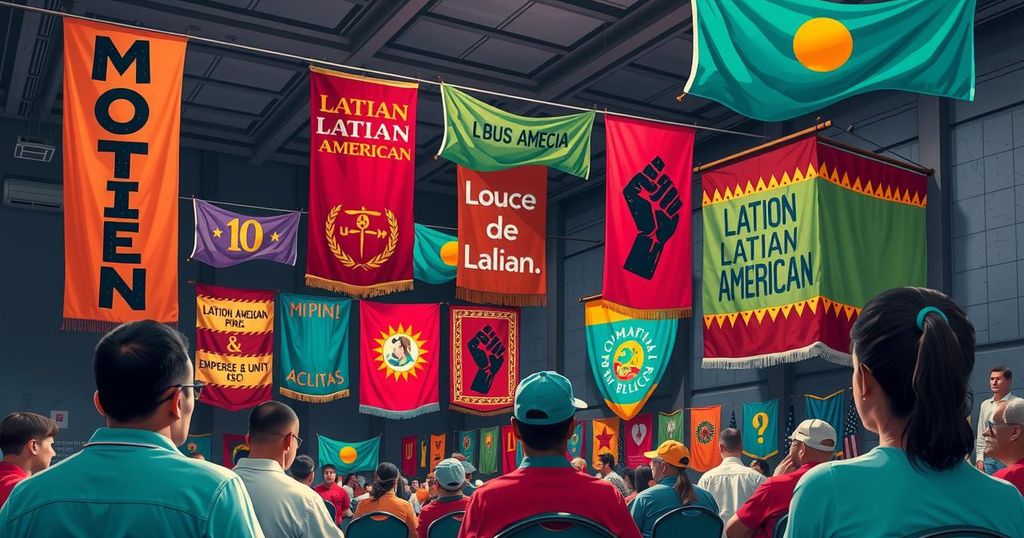Women leaders from Venezuela and Nicaragua convened in New York for a discussion on resistance to U.S. imperialism and women’s rights advancements. Asia Villegas addressed the challenges faced by Venezuela due to U.S. sanctions, while Hazel Reyes highlighted Nicaragua’s achievements in gender equality. The meeting served as a vital platform for voicing the impacts of economic warfare and the resilience of women in both nations.
On March 20, women leaders from Venezuela and Nicaragua participated in a significant discourse at the Workers World Party office in Manhattan, New York. This event was attended by U.S. anti-imperialist activists and coincided with their presence in New York for meetings related to women’s organizations at the United Nations. The hybrid meeting addressed the issues surrounding U.S. imperialist pressure on both nations as well as the advancement of women’s rights in these Latin American societies.
Deputy to the Venezuelan National Assembly, Asia Villegas, commenced the discussion by highlighting what she termed “external aggression” from the Trump administration. This aggression includes unilateral coercive measures, or sanctions, which she stated have resulted in a loss of $650 billion for the Venezuelan populace since their inception. She emphasized how these sanctions impact 30 countries and disproportionately affect women, who primarily serve as caregivers.
Villegas denounced the recent deportation of Venezuelan migrants, allegedly labeled as gang members by the U.S. Without due process, these migrants were sent back to prisons in El Salvador. She argued that such actions represent economic warfare that initially compelled Venezuelans to migrate and decried the recent removal of Venezuelans’ Temporary Protective Status as a “double cross” by the U.S. government.
The conversation then placed emphasis on Venezuela’s diverse cultural background, incorporating Indigenous and Afro-descendant populations, and promoting the notion of a pluricultural democracy. Villegas asserted, “We are not criminals, and we are not enemies of the people of the United States,” stressing the resilience of Venezuelan communal organizations against imperialism.
The presentation was complemented by Hazel Reyes, a representative from Nicaragua, who shared that according to the World Economic Forum’s 2024 rankings, “Nicaragua occupies first place in gender equality in Latin America and sixth place in the world.” She attributed this progress to advancements made under the Sandinista government, including higher education’s female enrollment at 52% and a 50-50 representation policy in governance.
In the ensuing Q&A, Reyes elucidated the improvements experienced by Indigenous groups and the largely Afro-descendant population on the Atlantic Coast of Nicaragua. She affirmed that infrastructural developments, such as highways and electricity access, have significantly enhanced the quality of life for these communities. The meeting was co-chaired by Saher Al-Khabash and Mairead Skehan Gillis, both of whom had recently visited Nicaragua for the revolution’s anniversary celebrations. The event underlined the ongoing collaboration of local groups committed to social change and justice.
The meeting at the Workers World Party office showcased the voices of women from Venezuela and Nicaragua, emphasizing their resistance against U.S. imperialism and highlighting significant advancements in women’s rights. The event underscored the importance of solidarity among global communities, providing an opportunity for dialogue on issues surrounding gender equality and social justice. Through their narratives, the women leaders illustrated resilience in the face of oppressive measures, stressing the impact of international dynamics on local populations.
Original Source: www.workers.org




